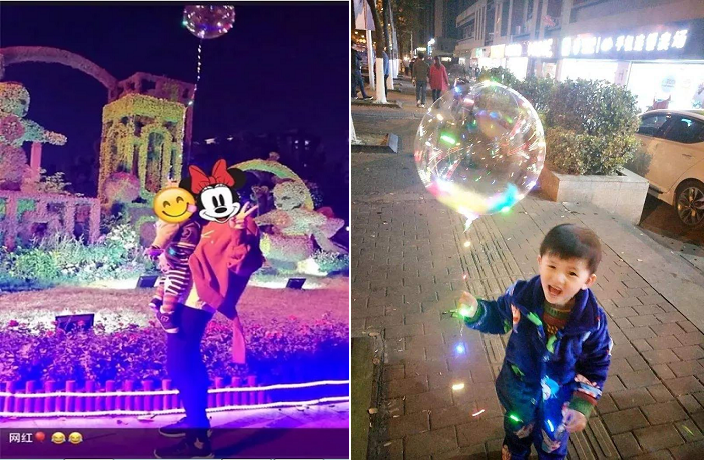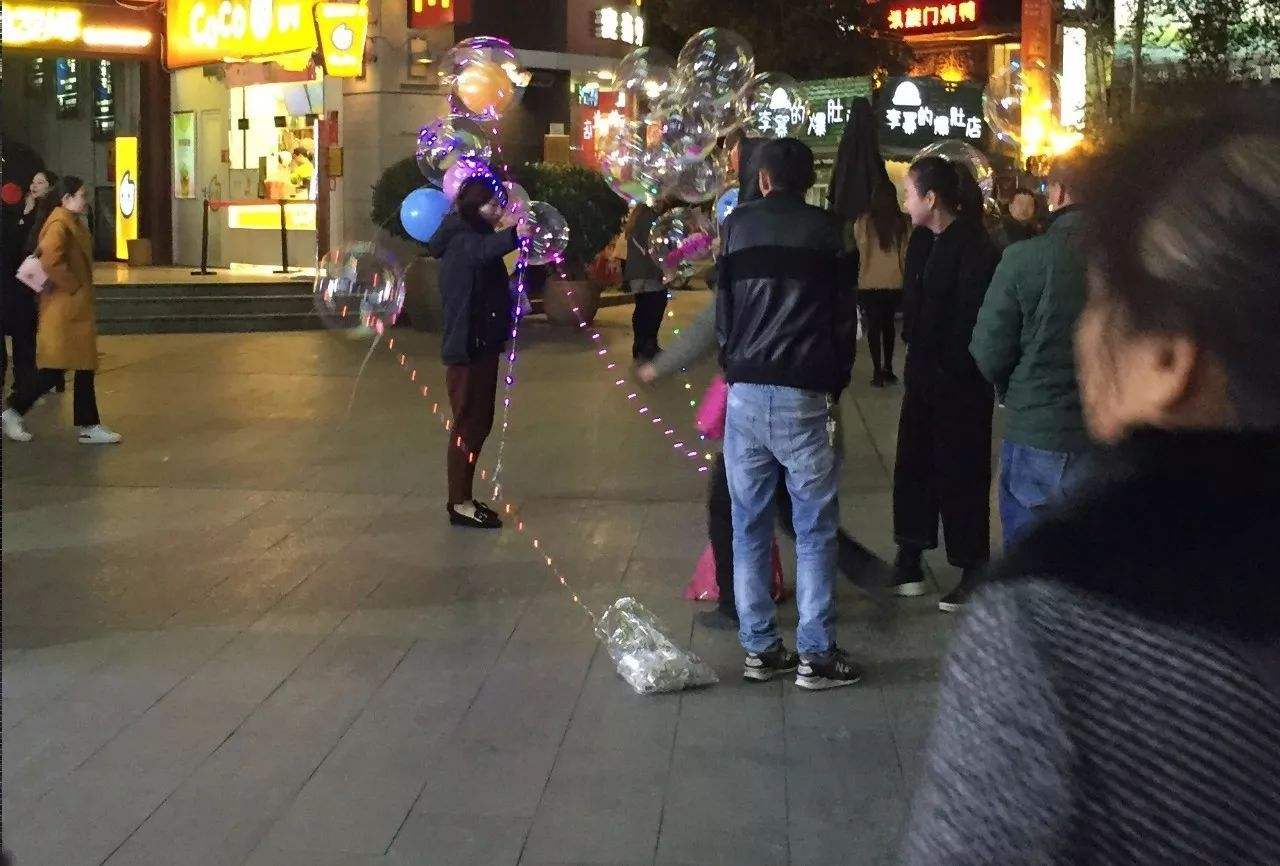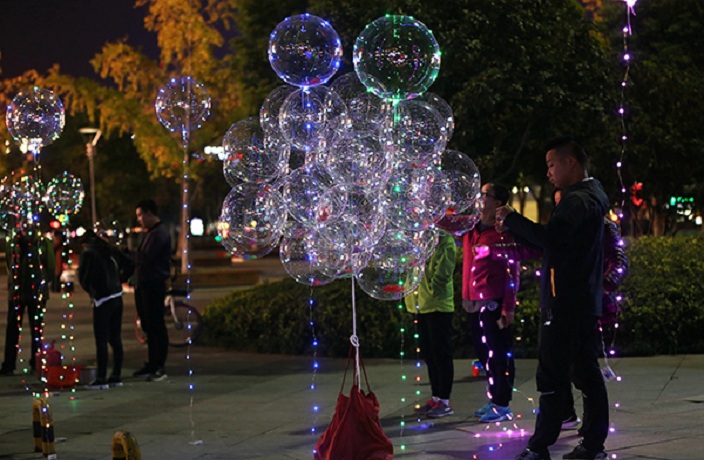You may have noticed the latest craze in balloons lighting up the night sky. However, as spectacular as they may look, they can pose a large safety concern, as shown this week when four people were injured when a balloon burst.
The incident took place in Nanjing when a group of friends purchased six of the illuminating balloons. As they got into a cab, one member of the group made the unwise decision to light a cigarette, leading the balloons to immediately blow up in his hand.
Seeing all the passengers caught up in the explosion, the cab driver drove them directly to a nearby hospital for treatment. According to the doctor, all of the friends were inflicted with burns of varying degrees. Mr. Wang the man who lit the cigarette was injured the most severely, with both his head and hands burnt black and emitting a scorched smell.

This type of balloon has become a sensation throughout the country, long before the tragedy occurred, and of course children in particular have enjoyed buying them. There is even a trend of posting photos of the colorful balloons on social media.
Many vendors have seized the chance to make a fortune from this latest craze. “On good days, I can make two thousand Yuan a night,” says one seller who refused to give his name. “Of course, the sales will be affected if the city watchdogs come to bust us, so we have to lay low for a while.”

So, how is it that these popular balloons can become dangerous bombs? It turns out that they should be inflated with helium, which is relatively safe and stable. However, to maximize profits, many vendors are choosing to use hydrogen, which is much cheaper and highly flammable; bursting when exposed to a spark.
“I’ve treated patients who were injured in hydrogen balloon explosions before,” says Tan Qian, director of the burn and plastic surgery department at Nanjing Drum Tower Hospital. “Hydrogen balloons are easy to explode. Not to mention the colorful balloon has electricity going through it, which then tends to generate an electric spark under high temperature.”

In 2008, China Meteorological Administration and Civil Aviation Administration of China released a Notice on Further Strengthening the Safety Management of Balloons, which regulates that hydrogen should be replaced by inert gases like helium when inflating balloons. However, nowadays most balloons sold are still inflated with hydrogen.
So this comes as a warning for all parents to think twice before purchasing these delightful sky lighting balloons - as beautiful as they may look, it’s not worth the risk to yourself and especially your children if they explode, and it seems the vendors inflating them cannot be trusted.


















